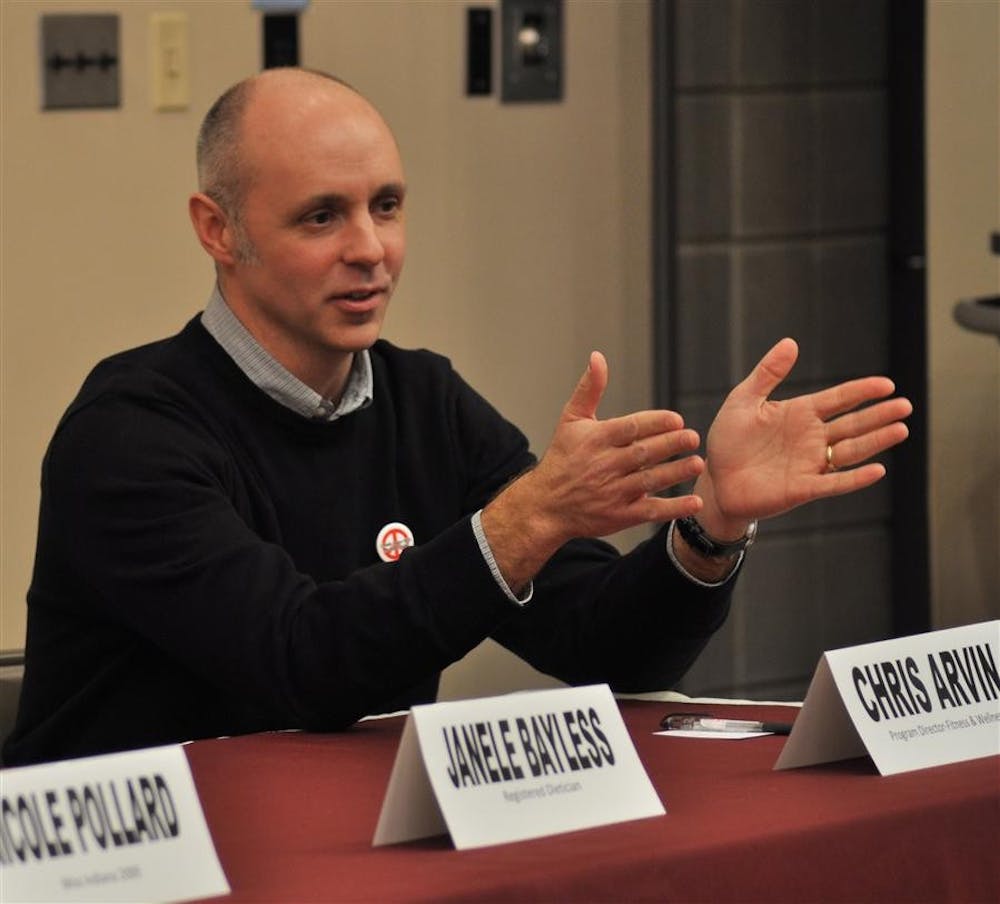This week students are urged to celebrate their bodies — no matter what the shape or size. To emphasize this message a panel discussion took place Wednesday night at the Student Recreational Sports Center auditorium focusing on body image and eating disorders.
“As students are starting to think about spring break, now is the time men and women are beginning to think more negatively about their body,” Chris Meno, counselor for IU Counseling and Psychological Services, said.
February is National Eating Disorder Awareness Month. In order to raise awareness, this week consists of activities that complete Celebrate EveryBODY Week.
Wednesday’s panel marked the second annual experts discussion.
The panel focused on a range of topics. Panelists covered eating disorders in both males and females, and also touched on where to get assistance and how to give help.
“Don’t ever give up on people with disorders,” Nicole Pollard, 2009’s Miss Indiana, said. “Just make sure they understand you’re there.”
Pollard is a graduate of IU. During her reign as Miss Indiana, her platform was about eating disorder prevention.
“Eating disorders come in all shapes and sizes,” Pollard said.
Symptoms, consequences and how these problems develop were among some of the issues discussed by the panel members. After an in-depth discussion on eating disorders, the panel emphasized the importance to get people to focus on celebrating the body they currently have.
“Focus on who you are and who you want to be,” Pollard said.
It is important to find a balance. A healthy person can be okay with taking a day off and eating a cookie because they want to, Pollard said.
Stress was also pinpointed as a major cause of eating disorders. Binge eating and skipping meals can be two consequences of being stressed out.
“An eating disorder, at the very core of it, is to adjust to those stress levels,” Pollard said.
Cultural, biological and psychiatric factors can contribute to eating disorders in different ways. The panel stressed the importance of people realizing they have a problem and seeking help.
Pollard said there are a lot of resources out there, but not enough support groups.
Freshman Abbey Ford went to the panel discussion for one of her classes. Ford said she might not have gone otherwise, but she is glad she did.
“I realized eating disorders are all around us even though we may not be aware of it,” Ford said.
Panel: Students should celebrate their body size

Get stories like this in your inbox
Subscribe





